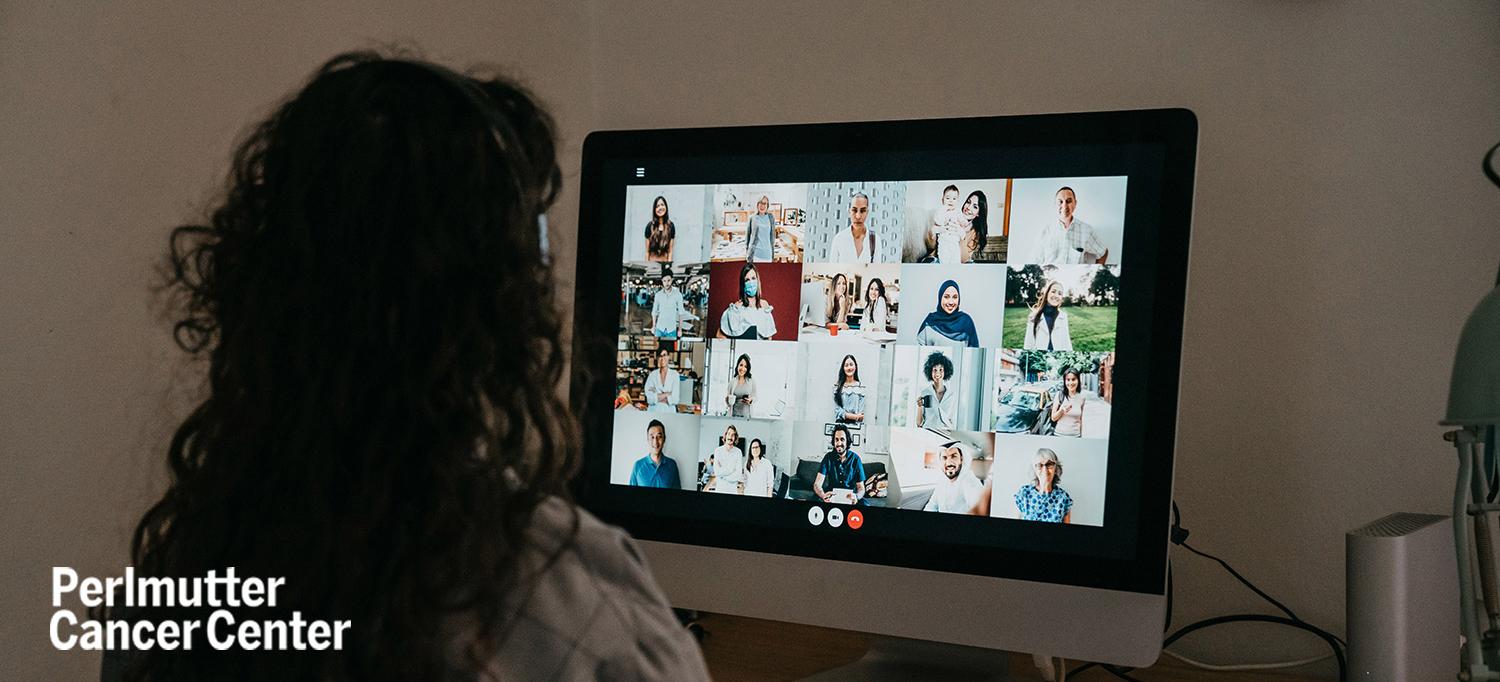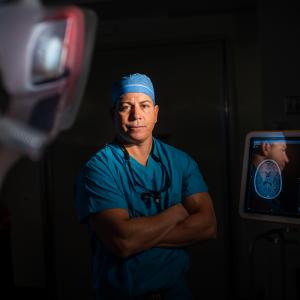
Photo: FilippoBacci/Getty
Cancer doesn’t stop during a pandemic, and neither does the need for people with cancer and their caregivers to seek support.
Shortly after the 2019 coronavirus disease (COVID-19) pandemic forced the closure of some outpatient support services at NYU Langone Health—and Perlmutter Cancer Center—in March, social workers at the cancer center turned to virtual support groups to supplant in-person meetings. Among the first to adapt to this new normal was Catherine Paykin, MSW, who facilitates support groups for people with lung cancer and for caregivers of people with lung and pancreatic cancers. These are among several support groups and counseling services available to people with cancer.
“People with cancer who join a support group can forge new friendships at a time where they’re potentially isolated because of their illness, and the COVID-19 pandemic adds another layer on top of that,” Paykin says. “A virtual support group is a place where they can find people who understand what they’re going through and can give both practical tips for living well and emotional support.”
In April, Paykin transitioned her 12-person lung cancer support group to connect over Webex. For many of her clients, there was a substantial learning curve.
“People with lung cancer tend to be older individuals, which brought its own set of challenges,” says Paykin. “They may not necessarily have a computer. Some may have bought their first tablet or laptop ever, or they may be working with a phone that isn’t a smartphone.”
Paykin says she benefited from the advice of some younger patients in the support group who offered tips on training the less tech savvy group members on techniques such as muting and unmuting as well as shortening the meeting time to accommodate the online aspect.
One of the benefits of meeting virtually, Paykin notes, is that people who typically would not have been able to join a support group are now able to join the meetings. She now has people participating who live in New York City’s outer boroughs as well as people from as far away as California and Vermont. The group has grown from 12 to 22 participants.
Caregivers will benefit from the virtual support groups as well.
“Caregivers have traditionally been very hard to bring into a support group,” Paykin says. “They might be working full-time and taking care of their families, which limits their ability to participate.”
The support group that Ms. Paykin currently runs for caregivers of people with lung and pancreatic cancers will expand to include people who care for those with any end-stage cancer. The new group will be facilitated by Audrey Sheridan, MSW, a social worker at NYU Langone Hospital—Brooklyn.
Paykin and Sheridan, with Josiah Johnson, an NYU Langone employee with an arts background who volunteers as a drama consultant, are creating a 10-minute film about the importance of caregiving and groups that will debut at Perlmutter Cancer Center’s Lung Cancer Awareness Day, which will be held virtually in November.
While the virtual support groups offer advantages over in-person meetings, patients still miss the face-to-face contact that traditional support groups provide. Those who do not have access to a computer and call in to Webex by phone miss seeing the faces of other members.
“Though some patients miss getting together in person, I don’t foresee returning to in-patient support groups,” Paykin says. “The virtual groups are convenient, safer, and inclusive.”

